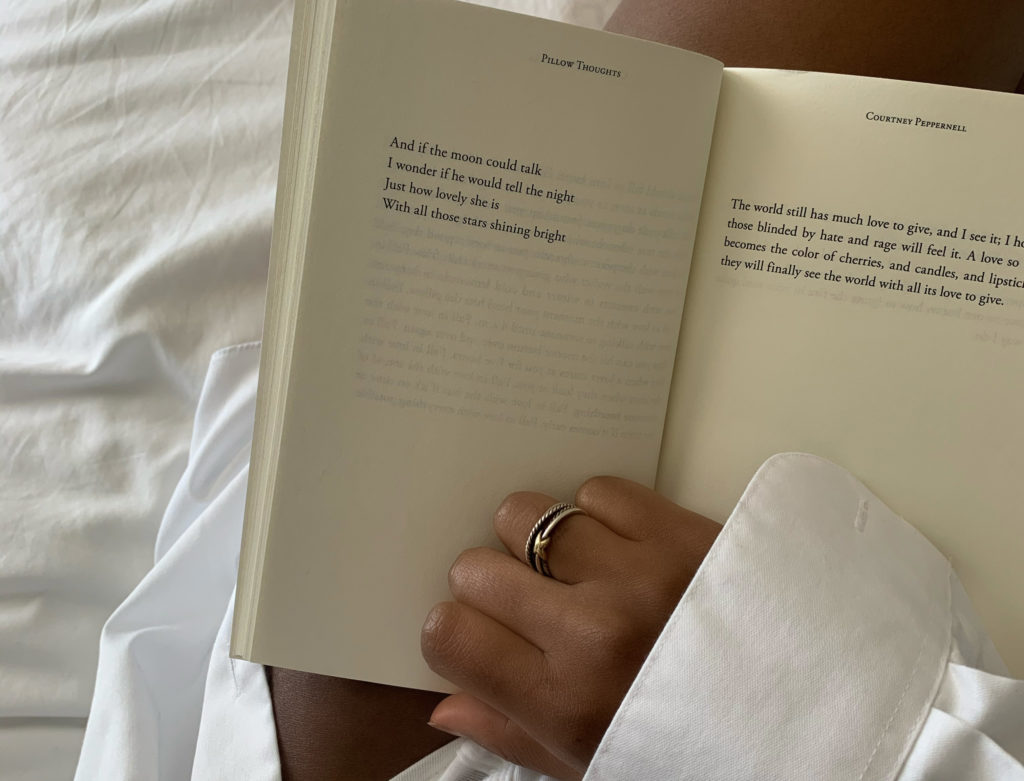
Layla Saad. Robin DiAngelo. Bryan Stevenson. DeRay Mckesson. Sally Kohn. When we launched The goop Podcast a little over two years ago, it was because we wanted a space to have hard, important conversations with people we look up to. Our hosts, Elise and GP, have been taken to the mat a few times. We love them for being open enough to be challenged, for being vulnerable, for always listening. In turn, we’ve learned a lot from listening to their guests.
We’ve bookmarked a handful of episodes that we’ve gone back to and have been sending to friends as they continue internal and external conversations on race, justice, and privilege. We’ve also increasingly been sharing a few episodes on different forms of activism, as well as episodes with practitioners who help people heal from trauma. We hope something here will be helpful for you, too.
Anti-Racism Education
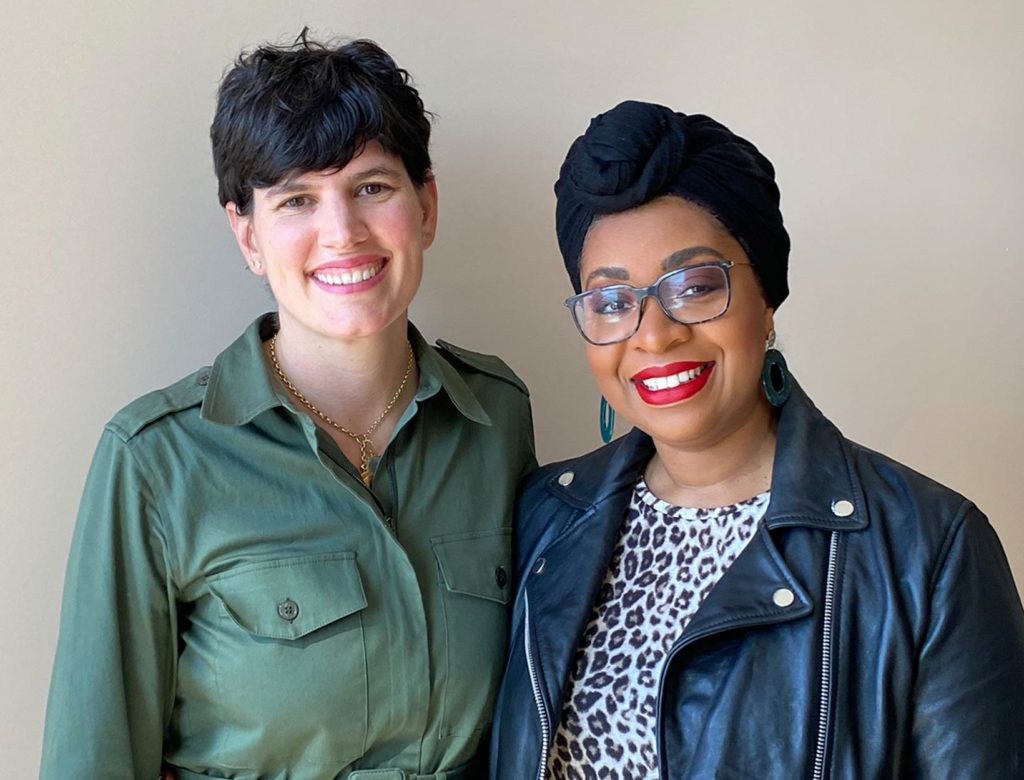
Layla Saad: Stepping Out of Privilege
“We need people who are willing to turn within and see: How am I part of the problem?” says global activist Layla Saad. The New York Times–bestselling author of Me and White Supremacy has become known for helping people examine—and talk about—the ways we unconsciously uphold racism. White supremacy may not be something you’ve chosen, says Saad, but it’s in the water, and it’s conditioned all of us in myriad ways. The critical inner work that Saad inspires can be difficult and messy—and it is so necessary.


DeRay Mckesson: How to Move from Ally to Accomplice
DeRay Mckesson is a civil rights activist, the author of On the Other Side of Freedom, host of Pod Save the People, and a cofounder of Campaign Zero, which pursues data-backed policy solutions to address police violence in America. Part of Mckesson’s work is rooted in telling stories about a more just future, a world we haven’t seen yet. The next part of this important work is getting people ready to live in that world. Our broken systems, Mckesson reminds us, were made up—and so we can make better ones. For some, this requires understanding your privilege and using it for good.

Bryan Stevenson: We Are Better than the Worst Things We’ve Done
Bryan Stevenson, the New York Times–bestselling author of Just Mercy, has been called America’s Nelson Mandela by Desmond Tutu and Nicholas Kristof. As a civil rights lawyer, he’s liberated more than a hundred people from death row, proving their innocence in the process. And as the founder of the Equal Justice Initiative, he opened the Legacy Museum and the National Memorial for Peace and Justice in Montgomery, Alabama, which commemorate lynching, slavery, terrorism against African Americans, Jim Crow, and mass incarceration in this country. Because of our history, Stevenson argues that no one in this country is really free, but he paints a path to a more just society in which we can all confront and overcome racial inequality.
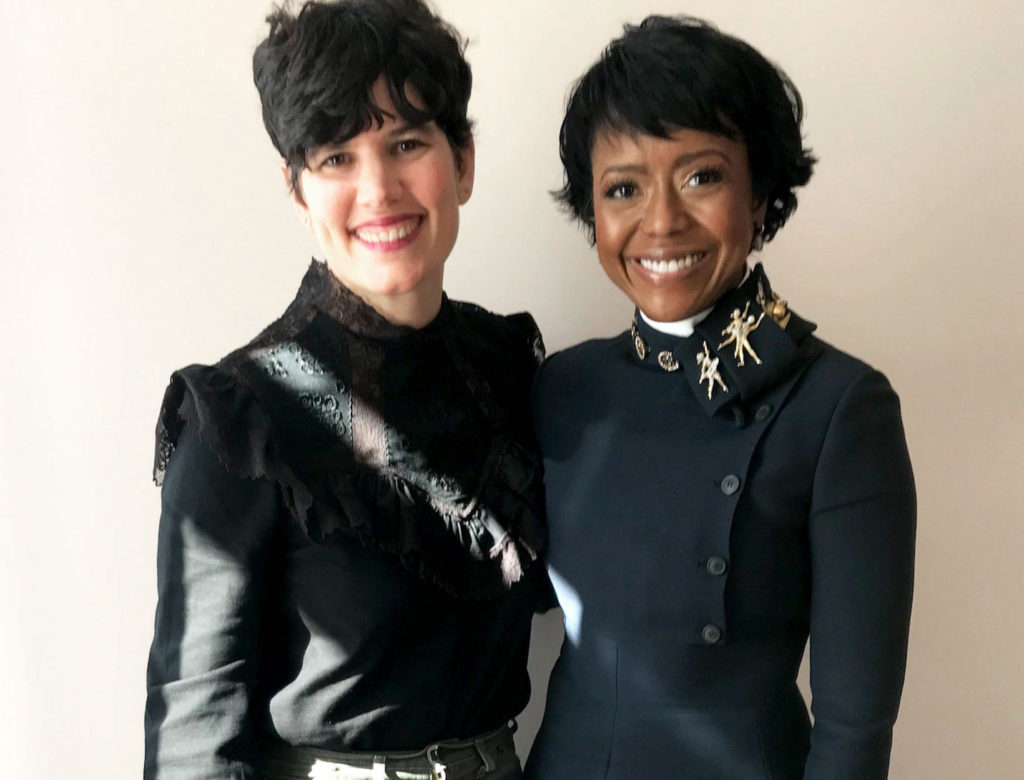
Mellody Hobson: Becoming Color-Brave
“Courage is not an absence of fear,” says Mellody Hobson, co-CEO and president of Ariel Investments. “It’s overcoming it.” Hobson believes that diversity isn’t just “the right thing to do.” Creating and fostering a more diverse workplace, where your conference rooms reflect the world outside, is the smart thing to do. Hobson explores how we can see, understand, and embrace difference—and at the same time, not allow difference to influence how we consider a person.

Environmental Racism and Injustice

Harriet Washington: The IQ Debate
“It’s really important to draw attention to not only the physical but also the mental consequences of a rampant environmental poisoning,” says medical ethicist Harriet A. Washington. In her book A Terrible Thing to Waste, Washington outlines the staggering, extensive impact of environmental racism. She examines how marginalized communities—and particularly the infants and children in these communities—are disproportionately affected by lead poisoning, atmospheric pollution, infectious disease, and industrial waste. In this conversation, she also takes on the IQ debate and the flawed science behind it. IQ, Washington reveals, is a misused metric that has had devastating effects on our country. And now, we have a critical opportunity to remedy many of these toxic effects.

Seth Siegel: How Dangerous Is Our Drinking Water?
The good news, says New York Times–bestselling author Seth M. Siegel, is that we know how to fix our water systems, and we can afford to do it. The bad news is there’s a lot wrong with the water we’re drinking right now: We still use the same water technologies that were put in place a century ago. Lead contamination in water pipes is still affecting the majority of our water lines. Remnants of medicines and pills can make their way into our water. To fix a problem, we have to know there is a problem. But information on the safety of our water and water testing is kept from the general public. We need to demand change.

Jessica Helm: Chemicals That Disrupt Hormones
How do endocrine-disrupting chemicals affect our health—and what can we do about them that isn’t all-consuming and overwhelming? This is the focus of Jessica Helm’s research. Helm is a postdoctoral fellow at Silent Spring Institute, and some of her most important work has examined ethnic disparities in chemical exposure and hormone-related health conditions.
Wellness and Mindfulness Tools

Rhonda V. Magee: Investigating Instead of Reacting
“Investigating what’s underneath the rage can help us then articulate—more clearly—our values,” says Rhonda V. Magee, a professor of law at the University of San Francisco and the author of The Inner Work of Racial Justice. Magee sat down with Elise at In goop Health and gave a master class on how we can remain grounded, compassionate, and true to ourselves in a world that often feels complex, difficult, and divided. She teaches us how to explore our feelings based on what’s happening in our bodies, to reframe our thinking, and to learn what is sometimes hard for us to see. Keep listening to the end, when Magee explains how to use the four steps of RAIN: recognize, accept, investigate, non-identification.

Healing Trauma
Bridging Divides

Sally Kohn: What We Get Wrong about Other People
“You’ve got to meet people where they are,” says Sally Kohn. “But then you don’t have to leave them there.” Kohn, a TV commentator and columnist, appeared on Fox News representing a liberal point of view for many years—that experience alone taught her a lot about listening, bridging, and ultimately persuading. Before that, Kohn worked for more than fifteen years as a community organizer. She talks to Elise about her incredibly helpful, surprisingly funny book, The Opposite of Hate: A Field Guide to Repairing Our Humanity. It’s a conversation that teaches us about listening to understand—not to argue—and about getting comfortable with discomfort. It also reminds us that we’re all way more similar than we tend to think we are.

Jamil Zaki: Empathy and Shame
There’s a lot we misunderstand about empathy, says Jamil Zaki, a professor of psychology at Stanford University and the author of The War for Kindness. Which is good. In this episode, he’s talking with Elise about empathetic distress—why empathy doesn’t always mean taking on the pain or struggle of someone else, and why being empathic can be a joyous experience. He explains what keeps us from this kind of empathy and connection: often shame. And he teaches us about finding a language for our feelings: “The people who can name their emotions are also most effective at working with them.” His take-home point? Empathy isn’t something we are born with; it’s something we build.

Andrew Solomon: The Difference between Love and Acceptance
An award-winning writer and activist for LGBTQ rights, mental health, and the arts, Andrew Solomon is adept at reframing misconceptions about what it means to be human. In this moving conversation, Solomon talks about why we crave exceptionalism and cling to sameness. Why we confuse the average with the ideal. Why we waste time hiding our shortcomings and strengthening our strengths. Why we’re threatened by difference. Why we misunderstand the experience of having a disability or being a prodigy.
Creating and Supporting Meaningful Change
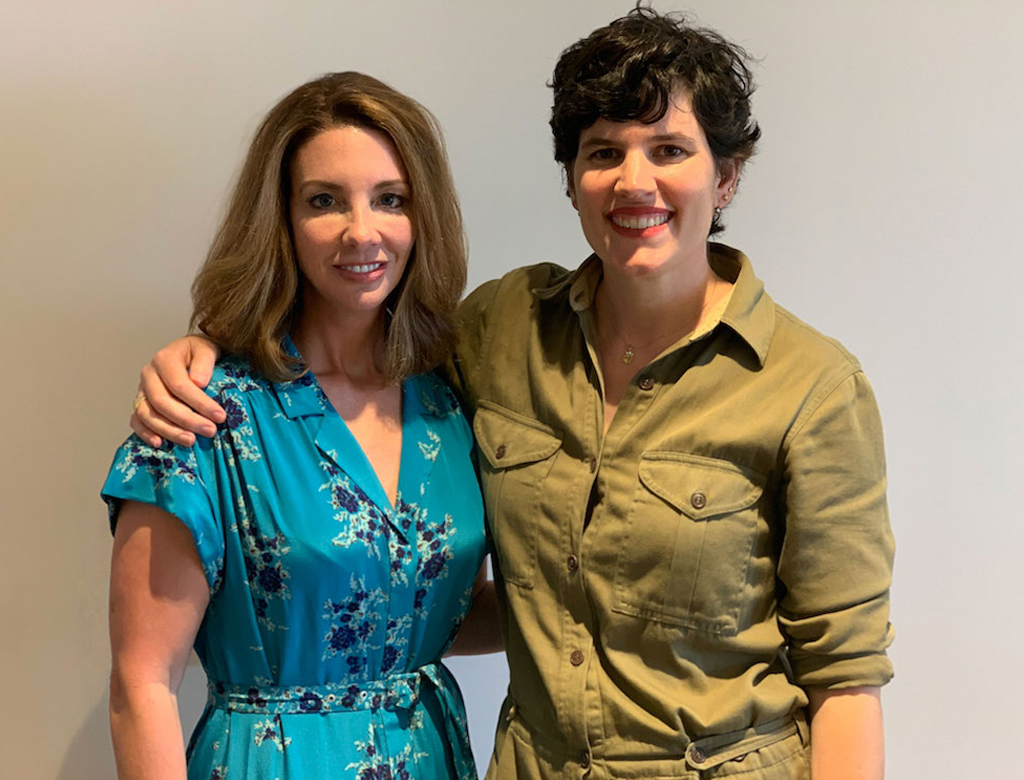
Shannon Watts: Fight Like a Mother
This is a handbook for people of all political leanings and persuasions—and for people who aren’t political at all but want to meaningfully engage with an issue. Shannon Watts—author of Fight Like a Mother, founder of Moms Demand Action, mother of five, and self-described type A personality—never thought she’d find herself leading a movement. But she stepped to the front of one, and her life (and our world) has never been the same since. Moms Demand Action is one of the largest grassroots movements in the country, focused on protecting people from gun violence. She outlines her road map for getting involved in a myriad of ways in humans rights and political issues.
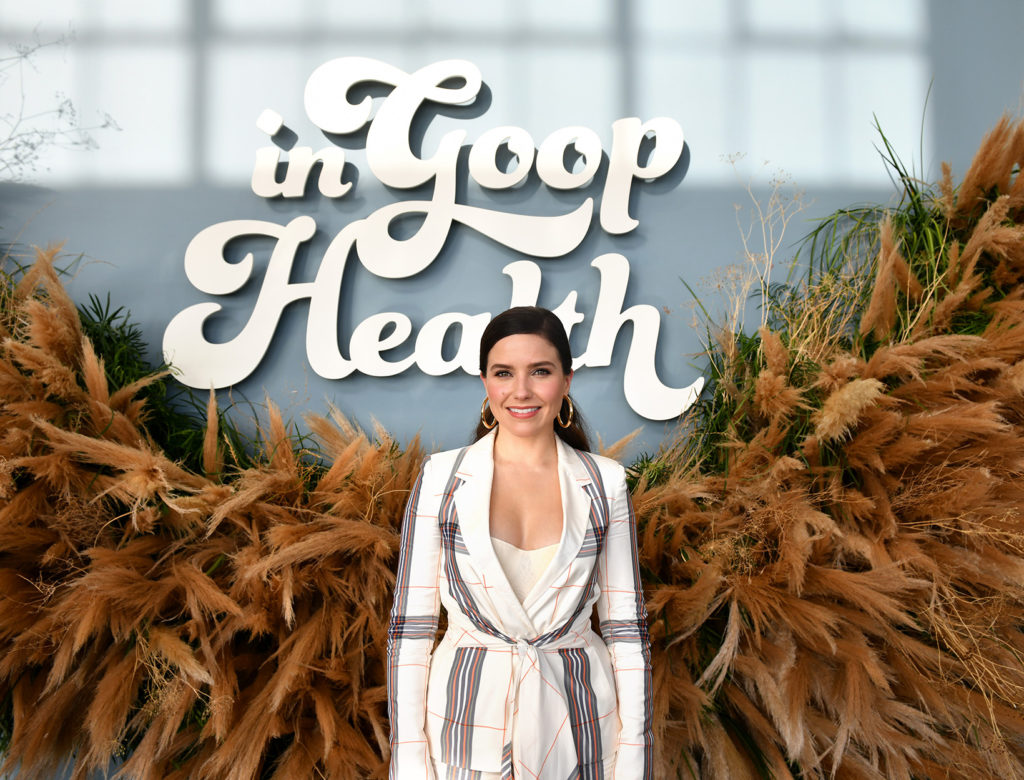
Sophia Bush: Why We Reduce Successful Woman to One Thing
Sophia Bush—actor, activist, and host of the podcast Work in Progress—joined Elise on stage at the last In goop Health summit of 2019. It can be scary to leave the box that other people put you in. It can be intimidating to use your voice or platform for social change. And it can be challenging to really listen to people you disagree with. But Bush proves that this is all also thrilling, important, and incredibly rewarding. To learn more, go to I Am a Voter, check the status of your voter registration, and register to vote.
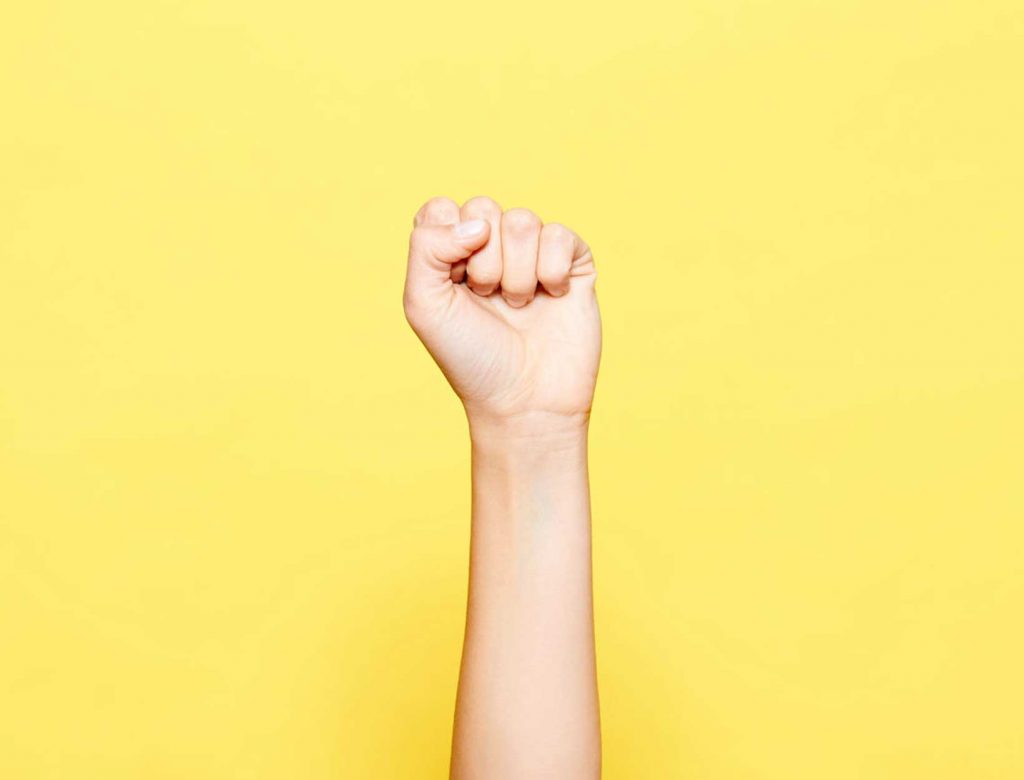
Erin Brockovich: Superman Isn’t Coming to Save Us
“I never thought you had to be any one way to be a person and to be kind and to learn,” says Erin Brockovich. Superman is not coming to save the environment, to clean up our water, to kick harmful chemicals out of our neighborhoods, says Brockovich. But we do not need to wait for oversight that does not exist. We simply have to believe that we can, that we should, that we have every right to speak up and speak out.

Cleo Wade: Why We Are Not Our Emotions
Cleo Wade—poet, activist, and author of Where to Begin—reminds us that simple words can turn into bigger actions. She helps us identify the things that get in our own way, which are often self-inflicted rules we impose on ourselves and each other that simply don’t work. We have a responsibility, Wade says, to tell our stories—and to find ways to open up to the stories of others.
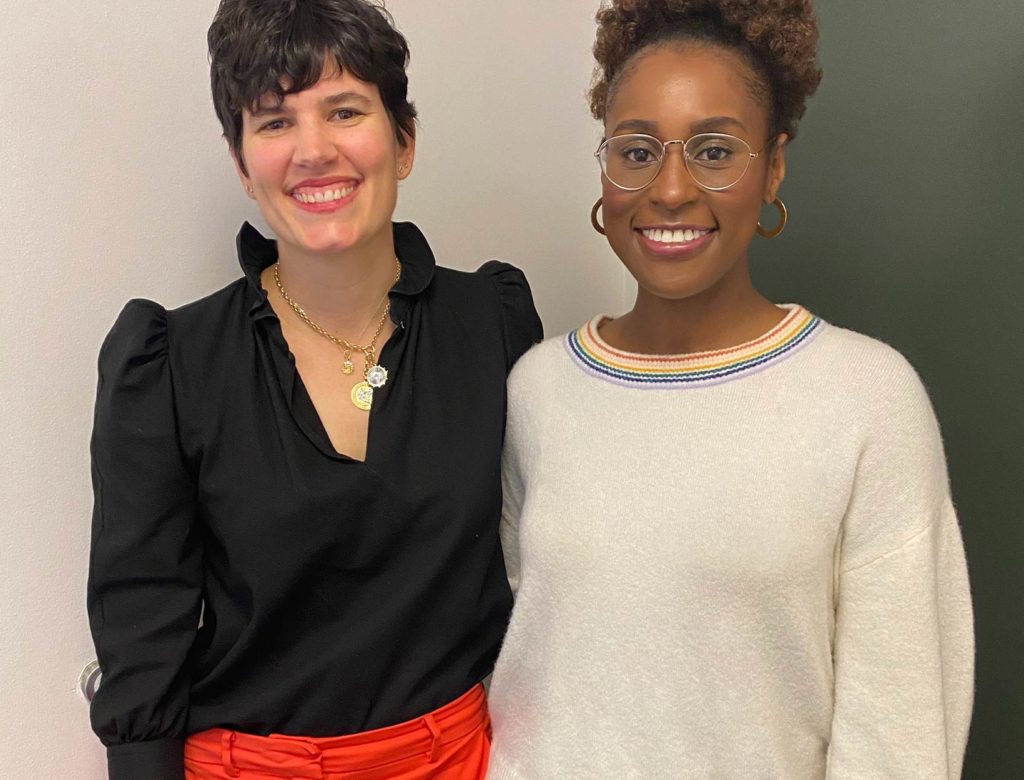
Issa Rae: Owning Our Awkwardness
“Why do I have to be super sweet to get something done?” asks Issa Rae. The actor, writer, and producer of Insecure joins Elise Loehnen to talk about owning our power as women. Rae says that she used to avoid speaking up—but now uses her voice to make change.
One-on-Ones with GP

Misty Copeland: On Being the First
Ballet star and history-maker Misty Copeland sat down with GP to talk about what it’s like being the first—something Copeland is intimately familiar with. She is the first African American woman to ever be promoted to principal dancer at the American Ballet Theatre. (She’s also the New York Times–bestselling author of books including Life in Motion, Ballerina Body, and the guided journal for kids Your Life in Motion.) She shares some of her incredible life story with GP, along with the tools she’s leaned on to heal from the past and find her place moving forward.

Janet Mock: The Journey to Self-Acceptance
A couple of years ago, the brilliant writer, director, and advocate Janet Mock came to In goop Health in LA. Mock talked about what it’s like to be on the front lines of a shifting culture and the moment that Mock realized she had to stop waiting for her role model and become the person she had been waiting for. Mock schooled GP—in the best way—on transgender issues that are really all of our issues. And GP asked Mock’s advice for parents whose children are struggling to be seen by society for who they are.

Kerry Washington: Staying Mentally and Emotionally Fit
Last October, GP sat down with Kerry Washington in front of a live audience. They talked about how their education shaped the trajectory of their lives in different ways. Washington told us why her heart breaks a little for her eleven-year-old self and what it was like learning to navigate her feelings. She talked about the role race plays in her life and in one of her newest projects, American Son, a Broadway play turned Netflix feature. And they talked about the other roles they’ve played as actors, mothers, and stepmothers.

Lupita Nyong’o: On Giving Yourself Permission to Learn
GP caught up with Lupita Nyong’o back when she was prepping for the release of her film Us (written and directed by the talented Jordan Peele). They talked about Nyong’o’s path to the platform she has today: growing up in Mexico and Kenya, her politician-professor father who was in self-exile, Nyong’o’s education (and why getting an Ivy League degree was important to her), landing her role in 12 Years a Slave, the cultural significance of Black Panther. They talked about shame—in the context of women’s sexuality and also the shame of not understanding something. “Ignorance doesn’t have to be permanent. It can be momentary,” says Nyong’o. “You have to allow yourself to learn. And it starts with admitting what you don’t know.” Another highlight: the pair’s perspective on how beauty is being redefined in the culture.

Layla Saad: Stepping Out of Privilege
“We need people who are willing to turn within and see: How am I part of the problem?” says global activist Layla Saad. The New York Times–bestselling author of Me and White Supremacy has become known for helping people examine—and talk about—the ways we unconsciously uphold racism. White supremacy may not be something you’ve chosen, says Saad, but it’s in the water, and it’s conditioned all of us in myriad ways. The critical inner work that Saad inspires can be difficult and messy—and it is so necessary.


DeRay Mckesson: How to Move from Ally to Accomplice
DeRay Mckesson is a civil rights activist, the author of On the Other Side of Freedom, host of Pod Save the People, and a cofounder of Campaign Zero, which pursues data-backed policy solutions to address police violence in America. Part of Mckesson’s work is rooted in telling stories about a more just future, a world we haven’t seen yet. The next part of this important work is getting people ready to live in that world. Our broken systems, Mckesson reminds us, were made up—and so we can make better ones. For some, this requires understanding your privilege and using it for good.

Bryan Stevenson: We Are Better than the Worst Things We’ve Done
Bryan Stevenson, the New York Times–bestselling author of Just Mercy, has been called America’s Nelson Mandela by Desmond Tutu and Nicholas Kristof. As a civil rights lawyer, he’s liberated more than a hundred people from death row, proving their innocence in the process. And as the founder of the Equal Justice Initiative, he opened the Legacy Museum and the National Memorial for Peace and Justice in Montgomery, Alabama, which commemorate lynching, slavery, terrorism against African Americans, Jim Crow, and mass incarceration in this country. Because of our history, Stevenson argues that no one in this country is really free, but he paints a path to a more just society in which we can all confront and overcome racial inequality.

Mellody Hobson: Becoming Color-Brave
“Courage is not an absence of fear,” says Mellody Hobson, co-CEO and president of Ariel Investments. “It’s overcoming it.” Hobson believes that diversity isn’t just “the right thing to do.” Creating and fostering a more diverse workplace, where your conference rooms reflect the world outside, is the smart thing to do. Hobson explores how we can see, understand, and embrace difference—and at the same time, not allow difference to influence how we consider a person.


Harriet Washington: The IQ Debate
“It’s really important to draw attention to not only the physical but also the mental consequences of a rampant environmental poisoning,” says medical ethicist Harriet A. Washington. In her book A Terrible Thing to Waste, Washington outlines the staggering, extensive impact of environmental racism. She examines how marginalized communities—and particularly the infants and children in these communities—are disproportionately affected by lead poisoning, atmospheric pollution, infectious disease, and industrial waste. In this conversation, she also takes on the IQ debate and the flawed science behind it. IQ, Washington reveals, is a misused metric that has had devastating effects on our country. And now, we have a critical opportunity to remedy many of these toxic effects.

Seth Siegel: How Dangerous Is Our Drinking Water?
The good news, says New York Times–bestselling author Seth M. Siegel, is that we know how to fix our water systems, and we can afford to do it. The bad news is there’s a lot wrong with the water we’re drinking right now: We still use the same water technologies that were put in place a century ago. Lead contamination in water pipes is still affecting the majority of our water lines. Remnants of medicines and pills can make their way into our water. To fix a problem, we have to know there is a problem. But information on the safety of our water and water testing is kept from the general public. We need to demand change.

Jessica Helm: Chemicals That Disrupt Hormones
How do endocrine-disrupting chemicals affect our health—and what can we do about them that isn’t all-consuming and overwhelming? This is the focus of Jessica Helm’s research. Helm is a postdoctoral fellow at Silent Spring Institute, and some of her most important work has examined ethnic disparities in chemical exposure and hormone-related health conditions.
Wellness and Mindfulness Tools

Rhonda V. Magee: Investigating Instead of Reacting
“Investigating what’s underneath the rage can help us then articulate—more clearly—our values,” says Rhonda V. Magee, a professor of law at the University of San Francisco and the author of The Inner Work of Racial Justice. Magee sat down with Elise at In goop Health and gave a master class on how we can remain grounded, compassionate, and true to ourselves in a world that often feels complex, difficult, and divided. She teaches us how to explore our feelings based on what’s happening in our bodies, to reframe our thinking, and to learn what is sometimes hard for us to see. Keep listening to the end, when Magee explains how to use the four steps of RAIN: recognize, accept, investigate, non-identification.

Healing Trauma
Bridging Divides

Sally Kohn: What We Get Wrong about Other People
“You’ve got to meet people where they are,” says Sally Kohn. “But then you don’t have to leave them there.” Kohn, a TV commentator and columnist, appeared on Fox News representing a liberal point of view for many years—that experience alone taught her a lot about listening, bridging, and ultimately persuading. Before that, Kohn worked for more than fifteen years as a community organizer. She talks to Elise about her incredibly helpful, surprisingly funny book, The Opposite of Hate: A Field Guide to Repairing Our Humanity. It’s a conversation that teaches us about listening to understand—not to argue—and about getting comfortable with discomfort. It also reminds us that we’re all way more similar than we tend to think we are.

Jamil Zaki: Empathy and Shame
There’s a lot we misunderstand about empathy, says Jamil Zaki, a professor of psychology at Stanford University and the author of The War for Kindness. Which is good. In this episode, he’s talking with Elise about empathetic distress—why empathy doesn’t always mean taking on the pain or struggle of someone else, and why being empathic can be a joyous experience. He explains what keeps us from this kind of empathy and connection: often shame. And he teaches us about finding a language for our feelings: “The people who can name their emotions are also most effective at working with them.” His take-home point? Empathy isn’t something we are born with; it’s something we build.

Andrew Solomon: The Difference between Love and Acceptance
An award-winning writer and activist for LGBTQ rights, mental health, and the arts, Andrew Solomon is adept at reframing misconceptions about what it means to be human. In this moving conversation, Solomon talks about why we crave exceptionalism and cling to sameness. Why we confuse the average with the ideal. Why we waste time hiding our shortcomings and strengthening our strengths. Why we’re threatened by difference. Why we misunderstand the experience of having a disability or being a prodigy.
Creating and Supporting Meaningful Change

Shannon Watts: Fight Like a Mother
This is a handbook for people of all political leanings and persuasions—and for people who aren’t political at all but want to meaningfully engage with an issue. Shannon Watts—author of Fight Like a Mother, founder of Moms Demand Action, mother of five, and self-described type A personality—never thought she’d find herself leading a movement. But she stepped to the front of one, and her life (and our world) has never been the same since. Moms Demand Action is one of the largest grassroots movements in the country, focused on protecting people from gun violence. She outlines her road map for getting involved in a myriad of ways in humans rights and political issues.

Sophia Bush: Why We Reduce Successful Woman to One Thing
Sophia Bush—actor, activist, and host of the podcast Work in Progress—joined Elise on stage at the last In goop Health summit of 2019. It can be scary to leave the box that other people put you in. It can be intimidating to use your voice or platform for social change. And it can be challenging to really listen to people you disagree with. But Bush proves that this is all also thrilling, important, and incredibly rewarding. To learn more, go to I Am a Voter, check the status of your voter registration, and register to vote.

Erin Brockovich: Superman Isn’t Coming to Save Us
“I never thought you had to be any one way to be a person and to be kind and to learn,” says Erin Brockovich. Superman is not coming to save the environment, to clean up our water, to kick harmful chemicals out of our neighborhoods, says Brockovich. But we do not need to wait for oversight that does not exist. We simply have to believe that we can, that we should, that we have every right to speak up and speak out.

Cleo Wade: Why We Are Not Our Emotions
Cleo Wade—poet, activist, and author of Where to Begin—reminds us that simple words can turn into bigger actions. She helps us identify the things that get in our own way, which are often self-inflicted rules we impose on ourselves and each other that simply don’t work. We have a responsibility, Wade says, to tell our stories—and to find ways to open up to the stories of others.

Issa Rae: Owning Our Awkwardness
“Why do I have to be super sweet to get something done?” asks Issa Rae. The actor, writer, and producer of Insecure joins Elise Loehnen to talk about owning our power as women. Rae says that she used to avoid speaking up—but now uses her voice to make change.
One-on-Ones with GP

Misty Copeland: On Being the First
Ballet star and history-maker Misty Copeland sat down with GP to talk about what it’s like being the first—something Copeland is intimately familiar with. She is the first African American woman to ever be promoted to principal dancer at the American Ballet Theatre. (She’s also the New York Times–bestselling author of books including Life in Motion, Ballerina Body, and the guided journal for kids Your Life in Motion.) She shares some of her incredible life story with GP, along with the tools she’s leaned on to heal from the past and find her place moving forward.

Janet Mock: The Journey to Self-Acceptance
A couple of years ago, the brilliant writer, director, and advocate Janet Mock came to In goop Health in LA. Mock talked about what it’s like to be on the front lines of a shifting culture and the moment that Mock realized she had to stop waiting for her role model and become the person she had been waiting for. Mock schooled GP—in the best way—on transgender issues that are really all of our issues. And GP asked Mock’s advice for parents whose children are struggling to be seen by society for who they are.

Kerry Washington: Staying Mentally and Emotionally Fit
Last October, GP sat down with Kerry Washington in front of a live audience. They talked about how their education shaped the trajectory of their lives in different ways. Washington told us why her heart breaks a little for her eleven-year-old self and what it was like learning to navigate her feelings. She talked about the role race plays in her life and in one of her newest projects, American Son, a Broadway play turned Netflix feature. And they talked about the other roles they’ve played as actors, mothers, and stepmothers.

Lupita Nyong’o: On Giving Yourself Permission to Learn
GP caught up with Lupita Nyong’o back when she was prepping for the release of her film Us (written and directed by the talented Jordan Peele). They talked about Nyong’o’s path to the platform she has today: growing up in Mexico and Kenya, her politician-professor father who was in self-exile, Nyong’o’s education (and why getting an Ivy League degree was important to her), landing her role in 12 Years a Slave, the cultural significance of Black Panther. They talked about shame—in the context of women’s sexuality and also the shame of not understanding something. “Ignorance doesn’t have to be permanent. It can be momentary,” says Nyong’o. “You have to allow yourself to learn. And it starts with admitting what you don’t know.” Another highlight: the pair’s perspective on how beauty is being redefined in the culture.

Rhonda V. Magee: Investigating Instead of Reacting
“Investigating what’s underneath the rage can help us then articulate—more clearly—our values,” says Rhonda V. Magee, a professor of law at the University of San Francisco and the author of The Inner Work of Racial Justice. Magee sat down with Elise at In goop Health and gave a master class on how we can remain grounded, compassionate, and true to ourselves in a world that often feels complex, difficult, and divided. She teaches us how to explore our feelings based on what’s happening in our bodies, to reframe our thinking, and to learn what is sometimes hard for us to see. Keep listening to the end, when Magee explains how to use the four steps of RAIN: recognize, accept, investigate, non-identification.

Bridging Divides

Sally Kohn: What We Get Wrong about Other People
“You’ve got to meet people where they are,” says Sally Kohn. “But then you don’t have to leave them there.” Kohn, a TV commentator and columnist, appeared on Fox News representing a liberal point of view for many years—that experience alone taught her a lot about listening, bridging, and ultimately persuading. Before that, Kohn worked for more than fifteen years as a community organizer. She talks to Elise about her incredibly helpful, surprisingly funny book, The Opposite of Hate: A Field Guide to Repairing Our Humanity. It’s a conversation that teaches us about listening to understand—not to argue—and about getting comfortable with discomfort. It also reminds us that we’re all way more similar than we tend to think we are.

Jamil Zaki: Empathy and Shame
There’s a lot we misunderstand about empathy, says Jamil Zaki, a professor of psychology at Stanford University and the author of The War for Kindness. Which is good. In this episode, he’s talking with Elise about empathetic distress—why empathy doesn’t always mean taking on the pain or struggle of someone else, and why being empathic can be a joyous experience. He explains what keeps us from this kind of empathy and connection: often shame. And he teaches us about finding a language for our feelings: “The people who can name their emotions are also most effective at working with them.” His take-home point? Empathy isn’t something we are born with; it’s something we build.

Andrew Solomon: The Difference between Love and Acceptance
An award-winning writer and activist for LGBTQ rights, mental health, and the arts, Andrew Solomon is adept at reframing misconceptions about what it means to be human. In this moving conversation, Solomon talks about why we crave exceptionalism and cling to sameness. Why we confuse the average with the ideal. Why we waste time hiding our shortcomings and strengthening our strengths. Why we’re threatened by difference. Why we misunderstand the experience of having a disability or being a prodigy.
Creating and Supporting Meaningful Change

Shannon Watts: Fight Like a Mother
This is a handbook for people of all political leanings and persuasions—and for people who aren’t political at all but want to meaningfully engage with an issue. Shannon Watts—author of Fight Like a Mother, founder of Moms Demand Action, mother of five, and self-described type A personality—never thought she’d find herself leading a movement. But she stepped to the front of one, and her life (and our world) has never been the same since. Moms Demand Action is one of the largest grassroots movements in the country, focused on protecting people from gun violence. She outlines her road map for getting involved in a myriad of ways in humans rights and political issues.

Sophia Bush: Why We Reduce Successful Woman to One Thing
Sophia Bush—actor, activist, and host of the podcast Work in Progress—joined Elise on stage at the last In goop Health summit of 2019. It can be scary to leave the box that other people put you in. It can be intimidating to use your voice or platform for social change. And it can be challenging to really listen to people you disagree with. But Bush proves that this is all also thrilling, important, and incredibly rewarding. To learn more, go to I Am a Voter, check the status of your voter registration, and register to vote.

Erin Brockovich: Superman Isn’t Coming to Save Us
“I never thought you had to be any one way to be a person and to be kind and to learn,” says Erin Brockovich. Superman is not coming to save the environment, to clean up our water, to kick harmful chemicals out of our neighborhoods, says Brockovich. But we do not need to wait for oversight that does not exist. We simply have to believe that we can, that we should, that we have every right to speak up and speak out.

Cleo Wade: Why We Are Not Our Emotions
Cleo Wade—poet, activist, and author of Where to Begin—reminds us that simple words can turn into bigger actions. She helps us identify the things that get in our own way, which are often self-inflicted rules we impose on ourselves and each other that simply don’t work. We have a responsibility, Wade says, to tell our stories—and to find ways to open up to the stories of others.

Issa Rae: Owning Our Awkwardness
“Why do I have to be super sweet to get something done?” asks Issa Rae. The actor, writer, and producer of Insecure joins Elise Loehnen to talk about owning our power as women. Rae says that she used to avoid speaking up—but now uses her voice to make change.
One-on-Ones with GP

Misty Copeland: On Being the First
Ballet star and history-maker Misty Copeland sat down with GP to talk about what it’s like being the first—something Copeland is intimately familiar with. She is the first African American woman to ever be promoted to principal dancer at the American Ballet Theatre. (She’s also the New York Times–bestselling author of books including Life in Motion, Ballerina Body, and the guided journal for kids Your Life in Motion.) She shares some of her incredible life story with GP, along with the tools she’s leaned on to heal from the past and find her place moving forward.

Janet Mock: The Journey to Self-Acceptance
A couple of years ago, the brilliant writer, director, and advocate Janet Mock came to In goop Health in LA. Mock talked about what it’s like to be on the front lines of a shifting culture and the moment that Mock realized she had to stop waiting for her role model and become the person she had been waiting for. Mock schooled GP—in the best way—on transgender issues that are really all of our issues. And GP asked Mock’s advice for parents whose children are struggling to be seen by society for who they are.

Kerry Washington: Staying Mentally and Emotionally Fit
Last October, GP sat down with Kerry Washington in front of a live audience. They talked about how their education shaped the trajectory of their lives in different ways. Washington told us why her heart breaks a little for her eleven-year-old self and what it was like learning to navigate her feelings. She talked about the role race plays in her life and in one of her newest projects, American Son, a Broadway play turned Netflix feature. And they talked about the other roles they’ve played as actors, mothers, and stepmothers.

Lupita Nyong’o: On Giving Yourself Permission to Learn
GP caught up with Lupita Nyong’o back when she was prepping for the release of her film Us (written and directed by the talented Jordan Peele). They talked about Nyong’o’s path to the platform she has today: growing up in Mexico and Kenya, her politician-professor father who was in self-exile, Nyong’o’s education (and why getting an Ivy League degree was important to her), landing her role in 12 Years a Slave, the cultural significance of Black Panther. They talked about shame—in the context of women’s sexuality and also the shame of not understanding something. “Ignorance doesn’t have to be permanent. It can be momentary,” says Nyong’o. “You have to allow yourself to learn. And it starts with admitting what you don’t know.” Another highlight: the pair’s perspective on how beauty is being redefined in the culture.

Sally Kohn: What We Get Wrong about Other People
“You’ve got to meet people where they are,” says Sally Kohn. “But then you don’t have to leave them there.” Kohn, a TV commentator and columnist, appeared on Fox News representing a liberal point of view for many years—that experience alone taught her a lot about listening, bridging, and ultimately persuading. Before that, Kohn worked for more than fifteen years as a community organizer. She talks to Elise about her incredibly helpful, surprisingly funny book, The Opposite of Hate: A Field Guide to Repairing Our Humanity. It’s a conversation that teaches us about listening to understand—not to argue—and about getting comfortable with discomfort. It also reminds us that we’re all way more similar than we tend to think we are.

Jamil Zaki: Empathy and Shame
There’s a lot we misunderstand about empathy, says Jamil Zaki, a professor of psychology at Stanford University and the author of The War for Kindness. Which is good. In this episode, he’s talking with Elise about empathetic distress—why empathy doesn’t always mean taking on the pain or struggle of someone else, and why being empathic can be a joyous experience. He explains what keeps us from this kind of empathy and connection: often shame. And he teaches us about finding a language for our feelings: “The people who can name their emotions are also most effective at working with them.” His take-home point? Empathy isn’t something we are born with; it’s something we build.

Andrew Solomon: The Difference between Love and Acceptance
An award-winning writer and activist for LGBTQ rights, mental health, and the arts, Andrew Solomon is adept at reframing misconceptions about what it means to be human. In this moving conversation, Solomon talks about why we crave exceptionalism and cling to sameness. Why we confuse the average with the ideal. Why we waste time hiding our shortcomings and strengthening our strengths. Why we’re threatened by difference. Why we misunderstand the experience of having a disability or being a prodigy.

Shannon Watts: Fight Like a Mother
This is a handbook for people of all political leanings and persuasions—and for people who aren’t political at all but want to meaningfully engage with an issue. Shannon Watts—author of Fight Like a Mother, founder of Moms Demand Action, mother of five, and self-described type A personality—never thought she’d find herself leading a movement. But she stepped to the front of one, and her life (and our world) has never been the same since. Moms Demand Action is one of the largest grassroots movements in the country, focused on protecting people from gun violence. She outlines her road map for getting involved in a myriad of ways in humans rights and political issues.

Sophia Bush: Why We Reduce Successful Woman to One Thing
Sophia Bush—actor, activist, and host of the podcast Work in Progress—joined Elise on stage at the last In goop Health summit of 2019. It can be scary to leave the box that other people put you in. It can be intimidating to use your voice or platform for social change. And it can be challenging to really listen to people you disagree with. But Bush proves that this is all also thrilling, important, and incredibly rewarding. To learn more, go to I Am a Voter, check the status of your voter registration, and register to vote.

Erin Brockovich: Superman Isn’t Coming to Save Us
“I never thought you had to be any one way to be a person and to be kind and to learn,” says Erin Brockovich. Superman is not coming to save the environment, to clean up our water, to kick harmful chemicals out of our neighborhoods, says Brockovich. But we do not need to wait for oversight that does not exist. We simply have to believe that we can, that we should, that we have every right to speak up and speak out.

Cleo Wade: Why We Are Not Our Emotions
Cleo Wade—poet, activist, and author of Where to Begin—reminds us that simple words can turn into bigger actions. She helps us identify the things that get in our own way, which are often self-inflicted rules we impose on ourselves and each other that simply don’t work. We have a responsibility, Wade says, to tell our stories—and to find ways to open up to the stories of others.

Issa Rae: Owning Our Awkwardness
“Why do I have to be super sweet to get something done?” asks Issa Rae. The actor, writer, and producer of Insecure joins Elise Loehnen to talk about owning our power as women. Rae says that she used to avoid speaking up—but now uses her voice to make change.
One-on-Ones with GP

Misty Copeland: On Being the First
Ballet star and history-maker Misty Copeland sat down with GP to talk about what it’s like being the first—something Copeland is intimately familiar with. She is the first African American woman to ever be promoted to principal dancer at the American Ballet Theatre. (She’s also the New York Times–bestselling author of books including Life in Motion, Ballerina Body, and the guided journal for kids Your Life in Motion.) She shares some of her incredible life story with GP, along with the tools she’s leaned on to heal from the past and find her place moving forward.

Janet Mock: The Journey to Self-Acceptance
A couple of years ago, the brilliant writer, director, and advocate Janet Mock came to In goop Health in LA. Mock talked about what it’s like to be on the front lines of a shifting culture and the moment that Mock realized she had to stop waiting for her role model and become the person she had been waiting for. Mock schooled GP—in the best way—on transgender issues that are really all of our issues. And GP asked Mock’s advice for parents whose children are struggling to be seen by society for who they are.

Kerry Washington: Staying Mentally and Emotionally Fit
Last October, GP sat down with Kerry Washington in front of a live audience. They talked about how their education shaped the trajectory of their lives in different ways. Washington told us why her heart breaks a little for her eleven-year-old self and what it was like learning to navigate her feelings. She talked about the role race plays in her life and in one of her newest projects, American Son, a Broadway play turned Netflix feature. And they talked about the other roles they’ve played as actors, mothers, and stepmothers.

Lupita Nyong’o: On Giving Yourself Permission to Learn
GP caught up with Lupita Nyong’o back when she was prepping for the release of her film Us (written and directed by the talented Jordan Peele). They talked about Nyong’o’s path to the platform she has today: growing up in Mexico and Kenya, her politician-professor father who was in self-exile, Nyong’o’s education (and why getting an Ivy League degree was important to her), landing her role in 12 Years a Slave, the cultural significance of Black Panther. They talked about shame—in the context of women’s sexuality and also the shame of not understanding something. “Ignorance doesn’t have to be permanent. It can be momentary,” says Nyong’o. “You have to allow yourself to learn. And it starts with admitting what you don’t know.” Another highlight: the pair’s perspective on how beauty is being redefined in the culture.

Misty Copeland: On Being the First
Ballet star and history-maker Misty Copeland sat down with GP to talk about what it’s like being the first—something Copeland is intimately familiar with. She is the first African American woman to ever be promoted to principal dancer at the American Ballet Theatre. (She’s also the New York Times–bestselling author of books including Life in Motion, Ballerina Body, and the guided journal for kids Your Life in Motion.) She shares some of her incredible life story with GP, along with the tools she’s leaned on to heal from the past and find her place moving forward.

Janet Mock: The Journey to Self-Acceptance
A couple of years ago, the brilliant writer, director, and advocate Janet Mock came to In goop Health in LA. Mock talked about what it’s like to be on the front lines of a shifting culture and the moment that Mock realized she had to stop waiting for her role model and become the person she had been waiting for. Mock schooled GP—in the best way—on transgender issues that are really all of our issues. And GP asked Mock’s advice for parents whose children are struggling to be seen by society for who they are.

Kerry Washington: Staying Mentally and Emotionally Fit
Last October, GP sat down with Kerry Washington in front of a live audience. They talked about how their education shaped the trajectory of their lives in different ways. Washington told us why her heart breaks a little for her eleven-year-old self and what it was like learning to navigate her feelings. She talked about the role race plays in her life and in one of her newest projects, American Son, a Broadway play turned Netflix feature. And they talked about the other roles they’ve played as actors, mothers, and stepmothers.

Lupita Nyong’o: On Giving Yourself Permission to Learn
GP caught up with Lupita Nyong’o back when she was prepping for the release of her film Us (written and directed by the talented Jordan Peele). They talked about Nyong’o’s path to the platform she has today: growing up in Mexico and Kenya, her politician-professor father who was in self-exile, Nyong’o’s education (and why getting an Ivy League degree was important to her), landing her role in 12 Years a Slave, the cultural significance of Black Panther. They talked about shame—in the context of women’s sexuality and also the shame of not understanding something. “Ignorance doesn’t have to be permanent. It can be momentary,” says Nyong’o. “You have to allow yourself to learn. And it starts with admitting what you don’t know.” Another highlight: the pair’s perspective on how beauty is being redefined in the culture.
We hope you enjoy the books recommended here. Our goal is to suggest only things we love and think you might, as well. We also like transparency, so, full disclosure: We may collect a share of sales or other compensation if you purchase through the external links on this page.



